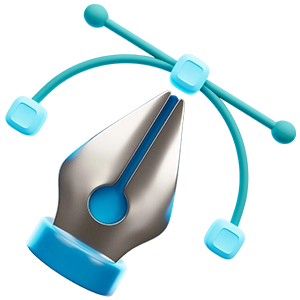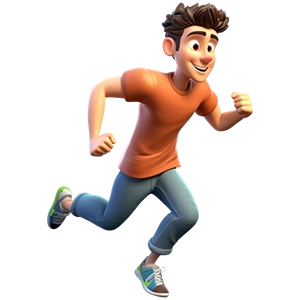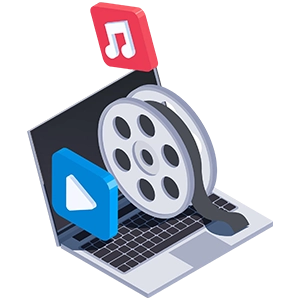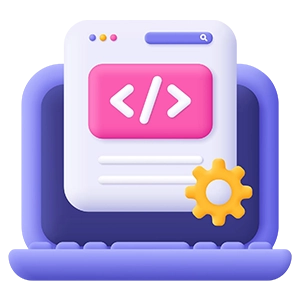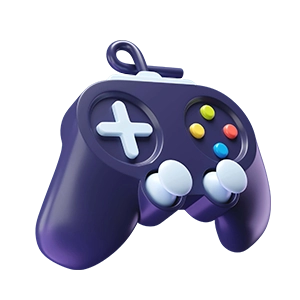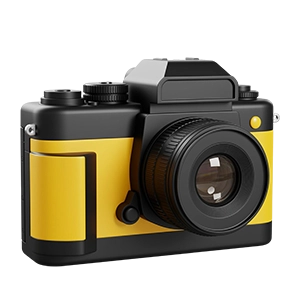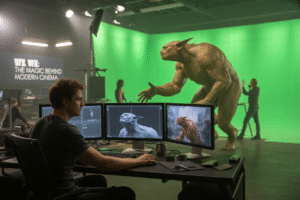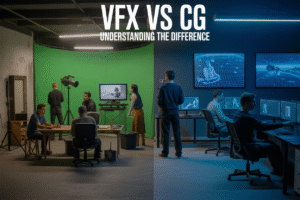In today’s digital-first world, graphic design is more important than ever. With brands striving to stand out visually, the demand for skilled designers has skyrocketed. If you have an eye for aesthetics and a passion for creativity, you might be wondering how to become a freelance graphic designer. This comprehensive guide is crafted for aspiring creatives ready to carve out a niche in the world of freelance design. We’ll walk you through every stage of the journey, from understanding the fundamentals to landing your first client and building a sustainable freelance design career.
Becoming a freelance graphic designer offers several benefits:
- Creative Freedom: Work on projects that align with your interests and style.
- Flexible Schedule: Set your own hours and choose your workload.
- Geographic Independence: Work from anywhere in the world.
- Diverse Clients: Gain experience by working with clients from various industries.
For many, choosing to start a freelance design career means more than just flexibility; it’s about taking control of your professional life and growing as both an artist and entrepreneur.
💡 Pro Tip :
Use a calendar app to schedule client work around peak productivity hours for maximum efficiency.
Skills You Need to Become a Freelance Graphic Designer
Before you dive in, ensure you have the essential skills that set successful freelancers apart:
Technical Proficiency
Master tools like Adobe Photoshop, Illustrator, InDesign, Figma, Canva, and Sketch. Learn basic UI/UX principles.
Design Fundamentals
Understand color theory, typography, layout design, branding, and composition.
Communication Skills
You need to articulate your ideas clearly to clients and understand their requirements.
Time and Project Management
Manage multiple clients, meet deadlines, and organize your workflow efficiently.
Marketing and Sales
Learn how to pitch, sell your services, and build your brand.
Remember, to become a freelance graphic designer, it’s not just about design. It’s also about managing a business.
💡 Pro Tip :
Develop an elevator pitch to use during networking opportunities and client calls.
Steps to Start a Freelance Design Career
Learn and Practice Graphic Design
You can enroll in online courses, attend workshops, or self-teach through YouTube and blogs. Platforms like Coursera, Udemy, and Skillshare offer specialized courses tailored for beginners.
Build a Strong Portfolio
Your portfolio is your resume. Create design samples that highlight your range and expertise. Even mock projects or passion projects count.
Choose Your Niche
Do you want to focus on logo design, branding, web design, UI/UX, or marketing graphics? Choosing a niche helps attract the right clients and become a recognized expert.
Set Up Your Business
Build a personal portfolio website.
Create profiles on Behance, Dribbble, and LinkedIn.
Share your work on social media platforms like Instagram and Pinterest.
Find Clients and Projects
Utilize freelance job platforms such as: Upwork, Fiverr, Freelancer, Toptal, 99designs. You can also try networking in Facebook groups, LinkedIn, or via cold emailing.
Manage Your Freelance Workflow
Use tools like Trello, Asana, Notion, or ClickUp for task management. Software like QuickBooks or Wave helps with invoicing and bookkeeping.
These are crucial graphic design freelancing steps to set yourself up for long-term success.
💡 Pro Tip :
Block time for admin work so it doesn’t interfere with creative tasks.
Best Platforms for Freelance Design Jobs for Beginners
If you’re just starting out, these platforms can help you find freelance design jobs for beginners:
Upwork: A great place for serious freelancers to find long-term clients.
Fiverr: Perfect for offering package-based services to a global audience.
Freelancer.com: Good for short-term projects and quick gigs.
99designs: Great for participating in design contests.
Toptal: Ideal for experienced designers looking for premium clients (requires passing a screening process).
Make sure to create a compelling profile with a professional photo, bio, and portfolio to attract clients.
💡 Pro Tip :
Start with lower competition categories to build up your ratings and reviews faster.

Tips for Long-Term Success in Freelance Graphic Design
Success in Freelance Graphic Design Comes From More Than Talent – It’s About Strategy, Consistency, and Continuous Growth
- Keep Learning: Design trends and tools are always evolving. Stay updated.
- Ask for Feedback and Reviews: Client testimonials build credibility.
- Deliver Quality Work On Time: Reliability builds trust and brings repeat business.
- Network: Attend online webinars, workshops, and join designer communities.
- Diversify Income: Explore passive income through selling templates, courses, or digital assets.
Following this freelance graphic designer guide ensures you’re not just landing projects, but also creating a sustainable career.
Common Mistakes to Avoid When You Start Freelancing
- Underpricing Your Work: Know your worth. Low prices can devalue your work and attract difficult clients.
- Skipping Contracts: Always use contracts to define scope, timelines, and payment.
- Poor Time Management: Missing deadlines can hurt your reputation.
- Lack of Communication: Keep clients in the loop and clarify expectations.
- Taking Every Project: Choose work that aligns with your goals and skills.
Conclusion
Starting a freelance design career can be both exciting and challenging. With the right mindset, tools, and strategy, you can transform your creativity into a thriving business. Remember, to become a freelance graphic designer, you need more than talent you need discipline, adaptability, and persistence.
Whether you’re learning how to start freelance graphic design or looking for freelance design jobs for beginners, this guide is your roadmap to success. Begin today, stay consistent, and watch your freelance design career grow.
Frequently Asked Questions (FAQs)
Becoming a freelance graphic designer without clients starts with building a strong portfolio using personal projects, mock work, or volunteer designs. Join platforms like Behance or Dribbble to showcase your work and create a professional online presence.
Use LinkedIn, Upwork, and Fiverr to pitch your services to small businesses or startups. Join designer communities and Facebook groups where clients regularly post freelance design jobs for beginners. Consistency, self-promotion, and good communication can quickly lead to your first paid project.
The first steps to start a freelance design career include identifying your design niche (logos, branding, social media, UI, etc.), building a compelling portfolio, and registering on freelance platforms.
Invest in learning basic business skills like client communication, invoicing, and contracts. Use tools like Canva Pro, Adobe Illustrator, or Figma based on your specialization. Create a clear pricing structure and start promoting your services on social platforms or freelance job boards.
Yes! The most effective graphic design freelancing steps are:
Learn core design tools and principles.
Choose a niche (e.g., logos, packaging, UI/UX).
Build a strong portfolio with 5–10 diverse samples.
Set up a personal brand and website or Behance profile.
Create profiles on freelancing platforms like Upwork or Freelancer.
Start bidding and pitching.
Deliver quality work, ask for testimonials, and improve with each project.
This system helps beginners grow into full-time freelance graphic designers.
You don’t need a degree to start freelance graphic design. Instead, focus on gaining hands-on skills using online tools and tutorials. Free and paid platforms like Coursera, Skillshare, or YouTube can teach everything from Adobe Photoshop to Figma. Build your portfolio by redesigning real brands for practice or collaborating with NGOs.
Many successful designers are self-taught. Clients care more about your design ability and results than formal education.
A beginner freelance graphic designer portfolio should focus on quality over quantity. Include 5–7 well-crafted projects that highlight your skills—such as logo design, social media graphics, posters, UI layouts, or brand identity concepts. Add mock projects if you don’t have client work yet. Use case studies to explain your design process, tools used, and problem-solving skills.
Include a short bio, contact form, and links to your social media or freelance profiles. A strong portfolio is key to landing freelance design jobs for beginners.
New freelance graphic designers often face challenges like inconsistent income, finding clients, pricing their services, and handling client communication. There’s also pressure to manage all aspects of the business. from design to invoicing to revisions. Many beginners struggle to set boundaries or say no to low-paying clients.
However, these obstacles can be overcome by following a freelance graphic designer guide, joining creative communities, and learning basic business and marketing skills alongside design.
To find well-paying freelance design jobs for beginners, start by creating a professional profile on platforms like Upwork, Freelancer, Fiverr, and Toptal. Use keyword-rich gig titles and optimize your portfolio for SEO. Network in Facebook groups, LinkedIn communities, and Discord servers dedicated to design.
Cold-emailing local businesses, startups, or NGOs can also help land initial projects. As you build credibility and reviews, you can gradually increase your rates and take on better-paying freelance opportunities.
To start a freelance graphic design career, you’ll need a combination of creative and business tools. For design, use software like Adobe Photoshop, Illustrator, Canva Pro, or Figma. For project management and collaboration, tools like Trello, Notion, or Slack can help.
Invoicing and contracts can be managed through tools like Bonsai, Wave, or PayPal. Cloud storage (Google Drive/Dropbox) and a portfolio site (Behance, Adobe Portfolio, or your own website) are also essential. These tools streamline your workflow and support professional growth.
Yes, many successful designers begin freelancing while studying or working another job. Start by dedicating a few hours weekly to build your portfolio, take on small freelance design jobs for beginners, and learn time management techniques.
Use weekends or evenings for client projects and communication. Focus on clients with flexible timelines and gradually scale your workload. Over time, you can transition into full-time freelancing once you’ve built enough income and experience.
Pricing your services as a new freelance graphic designer can be tricky. Start by researching market rates for similar work on platforms like Fiverr and Upwork. Decide whether to charge hourly, per project, or through design packages. Consider your skill level, project complexity, and client budget. Don’t undervalue your work. low pricing might attract difficult clients. A clear pricing guide in your portfolio helps avoid negotiation issues.
As you gain experience and client testimonials, gradually increase your rates and offer value-based pricing.
Yes, many comprehensive freelance graphic designer guides are available online to help beginners navigate their journey. These guides typically cover choosing a design niche, building a standout portfolio, creating pricing packages, finding clients, and managing contracts. They also suggest the best freelance platforms and tools for graphic designers.
Following a structured freelance graphic designer guide can save time, reduce mistakes, and help you start your design career with clarity and confidence.
You can start freelance graphic design using only free tools if you’re resourceful. Canva, Figma, GIMP, and Photopea are great for creating professional designs without spending on software.
Use platforms like Behance to showcase your work and Google Docs or Wave for invoicing and proposals. Learning from free YouTube tutorials or free courses on platforms like Coursera can also enhance your skills. Starting small with free tools is a smart, cost-effective way to enter freelance design.
In 2025, the key graphic design freelancing steps include:
Mastering modern design tools and AI-based platforms.
Choosing a profitable niche (like branding, social media, UI design).
Building a digital portfolio with case studies and mock projects.
Creating accounts on top freelance platforms.
Learning how to pitch and communicate with clients.
Setting up a personal brand on social media.
Delivering excellent work with quick turnaround.
These steps will help you become a competitive freelance graphic designer in today’s fast-changing industry.
Starting a freelance design career without agency experience is absolutely possible. Focus on learning practical skills, building a diverse portfolio, and demonstrating your design process.
Many clients value creativity and reliability over where you’ve worked. Offer to redesign local brand identities or create mock projects. Use testimonials from internships or volunteer work to build trust. Your personal brand, portfolio quality, and communication skills matter more than a formal resume in the freelance space.
Some of the best freelance design jobs for beginners in 2025 include social media graphics, logo design, YouTube thumbnails, business cards, presentations, and Canva templates.
These jobs are in high demand and don’t require complex tools. Start by offering affordable packages on sites like Fiverr or Freelancer. As you gain experience and reviews, you can move into more advanced work like website design, UX/UI, or brand identity development.
Yes, you can become a freelance graphic designer using just Canva, especially for entry-level design jobs. Canva Pro offers powerful features that let you create logos, social media graphics, flyers, brochures, and even pitch decks.
Many small businesses and entrepreneurs look for affordable designers who can deliver quick results using tools like Canva. Focus on understanding design principles, composition, and typography to stand out from the crowd—even if you’re not using complex software like Photoshop or Illustrator.
Popular platforms like Upwork, Fiverr, Freelancer, 99Designs, and PeoplePerHour are great for beginners to start freelance graphic design. These platforms offer built-in job listings, secure payment systems, and client ratings.
You can also explore niche platforms like DesignCrowd or Toptal as you grow. Communities like Reddit’s r/freelance or Facebook design groups also offer valuable tips and job opportunities. Choose 2–3 platforms to start with and focus on building a solid profile and gathering client reviews.
Personal branding is crucial when you start a freelance design career. It helps you stand out in a competitive market and builds trust with potential clients. Use consistent colors, tone, and design style across your website, social media, and portfolio. Share your story, design philosophy, and client testimonials.
A strong personal brand not only attracts higher-paying clients but also helps you build a lasting reputation in the freelance design world.
The time it takes to become a successful freelance graphic designer varies. With consistent effort, most designers start getting paid work within 1–3 months.
Achieving a stable income may take 6–12 months depending on your skill level, networking, and marketing efforts. Key factors include portfolio quality, client communication, niche focus, and ability to adapt to feedback. Success doesn’t happen overnight, but with persistence and smart strategy, freelancing can turn into a long-term design career.
- February 10, 2026
- Com 0
Can you copyright AI-generated designs? What every Indian graphic designer needs to know
- February 10, 2026
- Com 0
Combining Adobe Firefly with Photoshop: A guide to the ultimate AI-powered design workflow.
Want Professional Feedback?
These projects are ideal for personal growth, but they become truly powerful with expert critique, mentorship, and structured learning. That’s where a professional course makes the difference.
✅ Inside our 

Get feedback from real designers
Build industry-level projects
Learn tools like Photoshop, Illustrator, Figma, Firefly, and more
Learn how to package your projects into a real portfolio
– Turn your creativity into a career that’s future-proof.
